Drones: Top tips on safely flying your drone
- Published
- comments
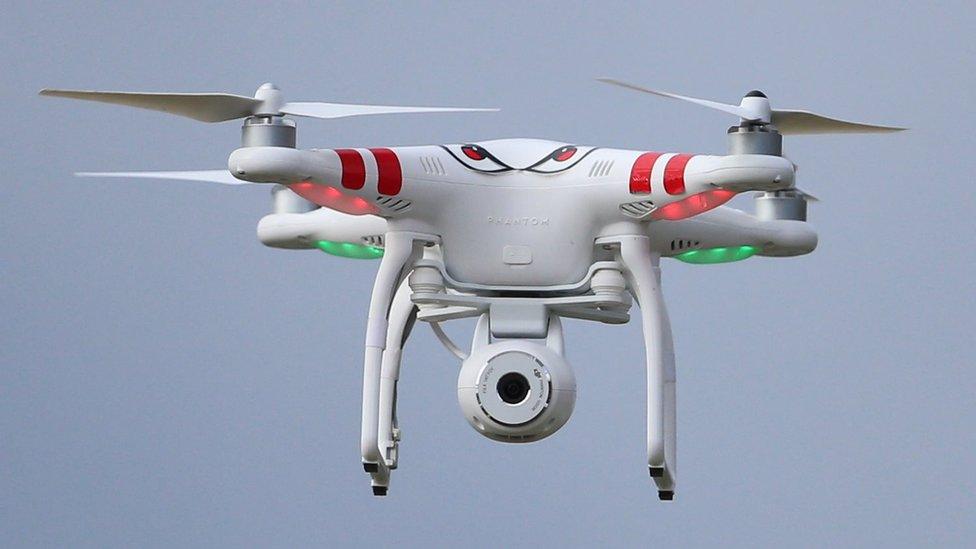
Flights have been stopped at Newark International Airport in the US state of New Jersey after two drones were spotted flying nearby.
A pilot told air traffic control that one of the drones came within 30ft (9m) of his aircraft.
This follows recent incidents at both Heathrow and Gatwick Airport.
Departures from Heathrow were stopped for an hour and London's Gatwick airport was closed for more than 36 hours after drone sightings.
5 top tips on flying your drone safely
What's going on?
Advances in technology have made drones smaller, lighter and cheaper for people to buy. That means there's a whole new generation of drones that are taking off.
Many people fly them for fun, but there are already lots of new ideas about how drones could be used in the future.
Companies have suggested drones could deliver shopping to your home, or get medicines to places that are difficult to reach.
But there are strict new rules about flying drones to make sure everybody is kept safe.
Where you can and cannot fly drones
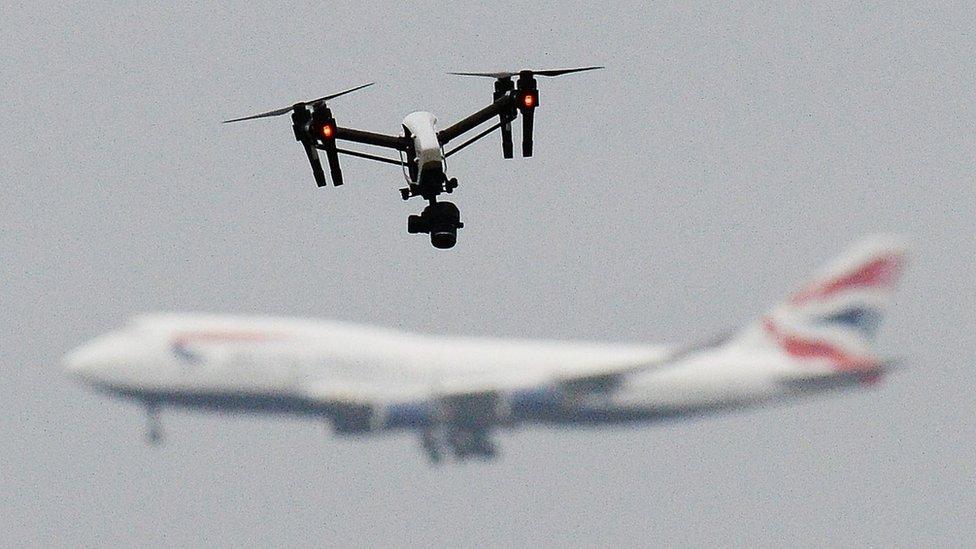
Drone users can be fined or even jailed if they fly a drone within certain areas close to airports
There are rules that all drone pilots are required to follow in the UK, such as keeping your drone in sight at all times, and never flying it above 400ft.
It is also not allowed to fly a drone over a busy area or within 150ft of a person, vehicle or building not under your control. Any images taken with a drone camera are also subject to privacy laws.
Concerning airports, drone operators are now banned from flying their machines within 5km of airport boundaries, with additional extensions at runway ends.
Putting an aircraft in danger is a criminal offence which can carry a prison sentence of up to five years.
Don't fly near airports or airfields.
Remember to stay below 400ft (120m).
Observe your drone at all times - stay 150ft (50m) away from people and property.
Never fly near aircraft.
Enjoy responsibly.
Source: Civil Aviation Authority
The government announced in January 2019 that the police will be given new powers to tackle the illegal use of drones.
They will also be able to search premises and seize drones - including the electronic data stored within the device - where a serious offence has been committed and a warrant is secured.
From 30 November pilots of drones weighing between 250g and 20kg will have to register and take an online drone pilot competency test.
The plans follow a consultation into the use of drones which began in July 2018.
Why have the new rules come in?
The number of aircraft incidents involving drones has grown dramatically in the past few years. In 2013 there were zero incidents, compared with more than 100 last year.
In December 2018, flights from Gatwick - the UK's second-busiest airport - were suspended for more than 36 hours after drones were reported over the airfield.
The government said it would expand technology to find and push back drones from sites like airports and prisons, to prevent any repeat of events like those at Gatwick airport.
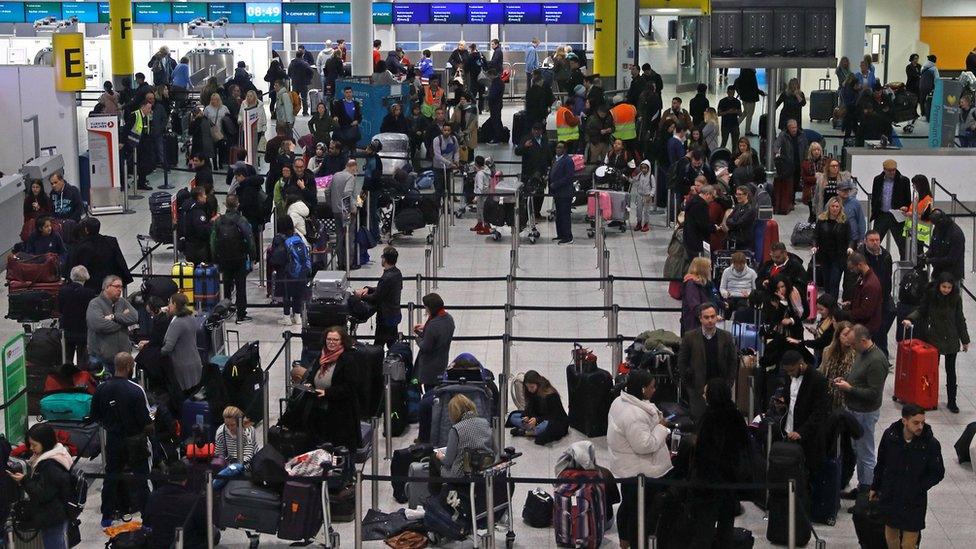
The drone chaos at Gatwick airport led to the cancellation of 1,000 flights and affected around 140,000 passengers just before Christmas
Transport Secretary Chris Grayling said the disruption caused at Gatwick was "deliberate, irresponsible and calculated, as well as illegal" and any restriction zone around the airport would not have prevented an incident of this type.
The opposition Labour Party said action on drones should have been taken years ago.
- Published2 May 2019
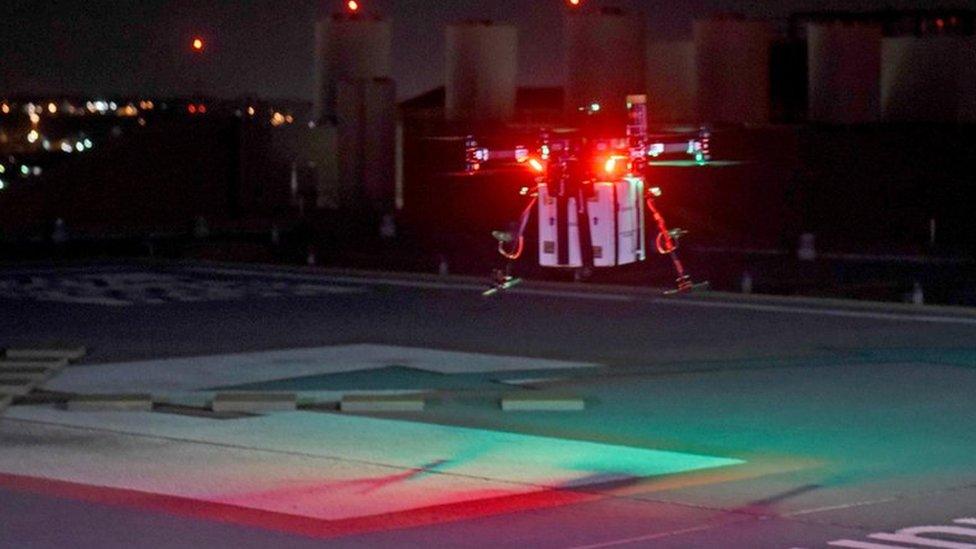
- Published2 February 2016
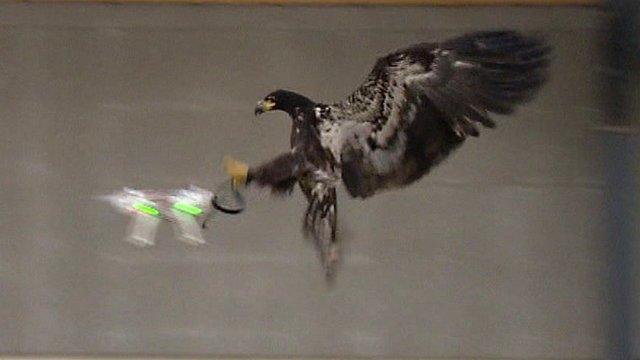
- Published24 June 2018

